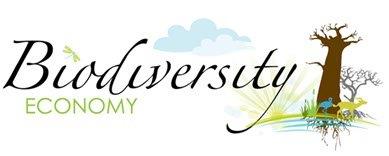Benefits of Biodiversity Sector
South Africa has exceptional biodiversity that provides a wide array of benefits to the economy, society and human wellbeing
Nature contributes to people in a wide variety of ways, from the cultural and spiritual connection with the natural world to the health that comes from a clean and safe environment. Nature provides food, water and climate protection, as well as innovation and employment through economies that are based on natural resources.
Natural Capital Research conducted in 2017 (Turpie et al, 2017) valued a few of the many ecosystem services provided by natural ecosystems in South Africa. It found that ecosystem services related to livestock fodder, harvested resources, tourism, non-use value, carbon storage, pollination, pest control, critical habitats, erosion control, water flow regulation and water quality, provided value worth R275 billion per year. This conservative valuation is equivalent to 7% of the country’s GDP.
The Biodiversity Sector is worth billions to the GDP of South Africa (R73 billion as reported in 2018 (NBA,2018).
The Overarching Benefits of Biodiversity
1. Provides substantial employment in a range of sectors - approximately 418 000 jobs related to the biodiversity sector
Biodiversity-related jobs rival the mining sector in terms of numbers. For every one job involved in managing and conserving biodiversity, there are five jobs in economic sectors that depend on biodiversity. This means that continued investment in biodiversity conservation helps to provide sustainable employment, contributing to one of South Africa’s primary national development goals.
2. Contributes to food security
Biodiversity plays an important role in commercial agriculture, which supplies food in large quantities to the majority of the population. Natural patches that surround farms are the source of pollinators and natural enemies of agricultural pests. Fruit and vegetable crops, which are often pollinated by animals, contain nutrients that are important for health. South Africa is unique in that it uses two indigenous sub-species of bees for pollination, which are far more disease-resistant than managed alien honeybees used in other parts of the globe. Natural predators also help to control pests that destroy crops.
More than 70% of South African land is used as grazing for livestock or game. In many parts of South Africa, the poorest people rely on food collected directly from the wild, including 1 300 edible plant species and many edible types of insects.
Numerous coastal communities rely on subsistence fishing for food as South Africa’s 22 commercial fisheries extract many species of seafood from the ocean.
In addition to direct benefits, there are numerous soil, nutrient cycling, and water-related ecosystem services that create the necessary environment for productive agriculture. These services also support the harvesting of wild species for food.
3. Vital for Wildlife Economy - economic contribution estimated at R14.4 billion, directly providing 65 000 jobs
There are approximately 10 000 wildlife ranches that engage in a range of commercial activities such as ecotourism, intensive game breeding, live game sales, trophy hunting and biltong hunting. Game meat and biltong are produced from 21 different species. The fact that wildlife can be private or communal property has resulted in stable large mammal populations in South Africa.
This industry relies heavily on biodiversity. Wildlife ranching is a vitally important land use for both socio-economic development and biodiversity conservation.
4. Stimulates Innovation
Bioprospecting and bio trade is the research and commercial applications of indigenous resources.
A survey of retail stores found 549 products containing indigenous South African species. Aloe, Rooibos, Honeybush, Baobab and Hoodia are just some local plants that have been used in lucrative international medicinal, cosmetic or food products.
Although the South African cut flower industry is small, many South African flower species are in high demand in global flower markets. These include Strelitzia, Protea and Gerbera Daisy.
South Africa has a list of 1 593 species that are the wild relatives of commercial crops. These species may be useful in the future for plant breeding or in developing new commercial food crops. Biomimicry is the process of learning from nature and emulating its forms and processes in engineered situations. Several biomimicry solutions have been gleaned from South African species, such as tougher ceramics based on the strong structure of abalone shells, wind turbine design based on whale flippers, and architectural cooling based on termite mounds.
5. Ecotourism - In 2015, approximately 12% of international and domestic tourism demand in South Africa, or R31 billion, was based on biodiversity, and biodiversity tourism supported 88 000 direct jobs
Many local and international tourists travel to South Africa to take part in nature-based activities and to enjoy the biodiversity. In 2015, the tourism industry was worth R249 billion or 3% of GDP.
Tourist involvement in biodiversity and nature varies in intensity with some tourists seeking out nature-based experiences such as scuba diving, hiking or game safaris, while others appreciate nature incidentally while enjoying other activities.
For domestic travellers, it is estimated that a quarter of all-day trips and 30% of overnight trips are focused on biodiversity-related activity. The natural environment is a drawcard for international tourists and 14% visit a natural attraction while in the country. Birding, or avitourism, is a significant niche tourism sector that attracts as many as 40 000 tourists annually, who spend up to R618 million.
6. Provides Medicine and approximately 93 000 income-generating activities in the informal sector for harvesters and traders
There are approximately 2 000 medicinal plant species in South Africa, and around 656 are commonly traded. Remedies that use medicinal plants are based on centuries of cultural practice and indigenous knowledge.
The traditional medicine sector operates in parallel with allopathic medicine. Traditional medicines are used by 70% of South Africa’s people and are essential to the work of some 200 000 Traditional Health Practitioners.
It is estimated that the informal African Traditional Medicine (ATM) industry is valued at about R18 billion per year. As much as 40 000 tonnes of medicinal plant raw material are traded per year in the informal sector.
7. Protect and Preserve Ecological Infrastructure
South Africa is a water-scarce country and ecological infrastructure such as healthy catchments, wetlands and riparian areas supports numerous water-related ecosystem services, including regulating the flow and quality of water.
Ecological infrastructure on the coast, such as dunes and kelp forests, protect man-made infrastructure from natural hazards. Furthermore, many estuaries provide a nursery function for important fish species.
Maintaining functional ecological infrastructure in strategically important areas will secure and improve various ecosystem services important to South Africans.
Ecosystem-based adaptation is the use of biodiversity and ecosystem services as part of an overall adaptation strategy to help people adapt to the adverse effects of climate change. Maintaining functional ecological infrastructure can contribute to ecosystem-based adaptation and help to protect people from climate change.
8. Enriches Everyday Life both Spiritually and Culturally
Experiencing nature has mental and physical health benefits and is important for South Africans everyday wellbeing.
Studies show that natural green spaces can improve the mental health of urban residents, and an active outdoor lifestyle promotes physical wellness. Natural areas in cities can help filter out air pollution and reduce urban heat effects. Some exceptional natural areas are associated with cultural and spiritual beliefs and are considered sacred sites.
Biodiversity also provides education opportunities (outdoor classrooms) and allows ordinary citizens to contribute to biodiversity science across the country.












